The Top 7 Songs That Ringo Starr Named As His Favorites
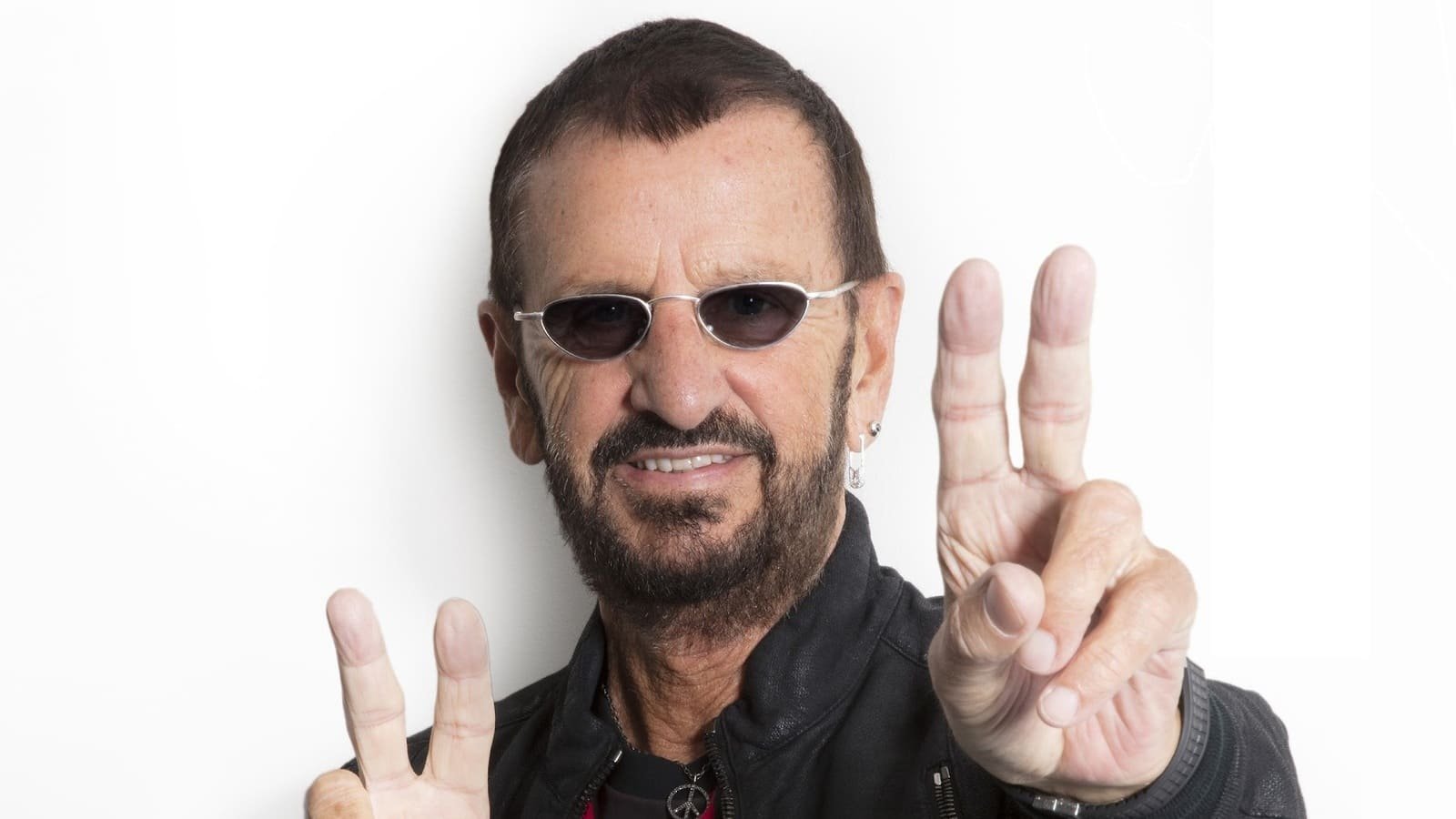
Ringo Starr names his favorite songs of all time. Ringo Starr is a famous drummer who adds unique drum parts to his songs for bands like The Beatles and his solo projects and collaborations. In this article, we will list the 7 songs Ringo Starr named as his favorite.
Ringo Starr, is a rock and roll legend, has left a positive impression on the music industry as The Beatles‘ drummer and through his spectacular solo career. His unique drumming approach was distinguished by its simplicity and precision, making it an ideal companion to the band’s inventive compositions. His outstanding drumming can be heard in classic songs such as “Come Together,” “A Hard Day’s Night,” and “Rain,” where he lent depth and fire to the tunes.
Following the split of The Beatles, Ringo Starr went on a solo career that displayed his abilities as a vocalist, songwriter, and multi-instrumentalist. His singles, including “Photograph,” “It Don’t Come Easy,” and “You’re Sixteen,” showcased his ability to write engaging and accessible songs that grabbed fans.
Starr’s effect spread beyond his music. His love of peace and love has become a defining feature of his identity. His yearly “Peace and Love” birthday celebration, where fans and fellow musicians come to spread positive messages. Also, he shows his commitment to making the world a better place via music and community.
Starr’s collaborations with other artists, such as the “Ringo Starr All-Starr Band,” allowed him to share the stage with various performers. These partnerships show his ability to bring musicians together and produce remarkable live experiences.
Let’s find out Ringo Starr‘s favorite songs of all time below!
You can also check 5 things you didn’t know about The Beatles here.
Ringo Starr’s Favorite Songs of All Time
The Beatles’ drummer Ringo Starr has shared his respect for other legendary musicians. And Starr picks his favorite songs of all time. Regardless, he loves to listen to different genres but also loves rock and roll and folk-rock musicians, specifically those who influence him.
Which songs does Ringo Starr listen to?
- Tell The Truth – Ray Charles
- Don’t Be Cruel – Elvis Presley
- Come Together – The Beatles
- Good Golly Miss Molly – Little Richard
- When The Deal Goes Down – Bob Dylan
- You Belong With Me – Taylor Swift
- Rain – The Beatles
During an interview with ABC News and other magazines, The Beatles‘ drummer Ringo Starr shared the top 7 songs of all time. Check out Ringo Starr‘s favorite songs of all time below!
1. Tell The Truth – Ray Charles
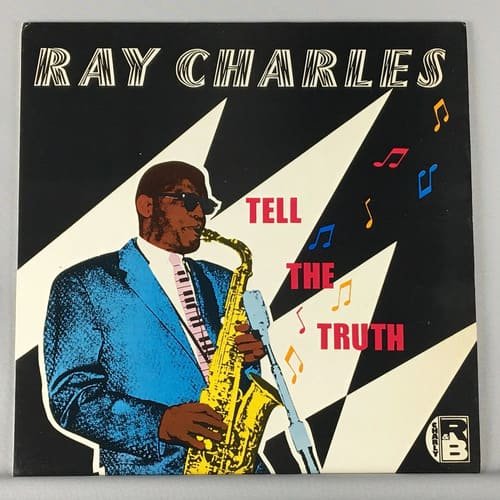
“Do the Twist! With Ray Charles” is a compilation album of previously recorded Ray Charles songs published by Atlantic Records in 1961. The album lasted a year on the Billboard charts, peaking at number eleven.
The album was retitled The Greatest Ray Charles and was given a new cover in 1963. The tracklist and catalog number (Atlantic 8054) remained unchanged.
Ray Charles‘ deep and emotionally charged song “Tell the Truth” is an unforgettable tribute to Charles’ ability to infuse his music with genuine passion and honesty. This piece, released in 1959 as part of his album “The Genius of Ray Charles,” exhibits Charles’ distinct singing style and skill of genre mixing.
“Tell the Truth” shows Charles’ natural ability to portray profound emotions through vocal delivery. His powerful, soulful voice conveys weight with fans, generating empathy and a deep connection to the song’s themes.
“Tell the Truth” is a song that brilliantly mixes rhythm and blues, gospel, and soul elements, showing Charles’ ability to merge genres.
Ringo Starr says why he likes “Tell the Truth” by Ray Charles as one of his favorite songs of all time:
“Well, Ray Charles’ version of ‘Yesterday’ – that’s beautiful. And ‘Eleanor Rigby’ is a groove. I just dig the strings on that. Like ’30s strings.
Most of the drummers couldn’t nail the drum part. It was a little difficult to do. But Ringo nailed it. I remember the moment just standing there and looking at John and then looking at George, that was ‘the moment.’ So you know, that was the beginning, really, of The Beatles.”
2. Don’t Be Cruel – Elvis Presley
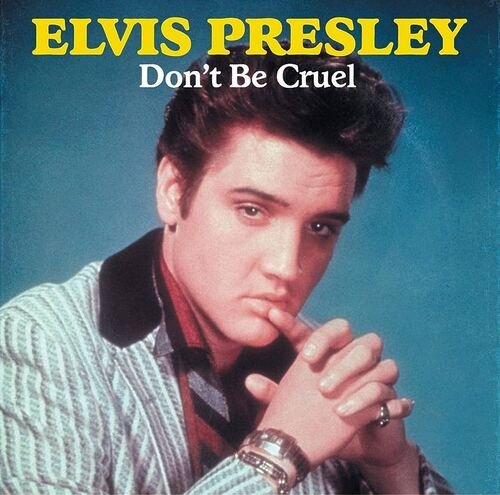
“Don’t Be Cruel,” Elvis Presley‘s famous rock and roll song, is an excellent example of his pioneering musical style and magnetic performance. This song, released in 1956 as the B-side of “Hound Dog,” became one of Elvis Presley’s most iconic songs and a watershed point in creating rock music.
The song’s lively speed, appealing tune, and Presley’s impassioned delivery encapsulated the budding rock ‘n’ roll genre’s young excitement and defiance.
In “Don’t Be Cruel,” Presley’s unusual vocal style shows through, showcasing his ability to infuse his singing with a unique combination of charisma, fragility, and charm.
Aside from its melodic and lyrical merits, “Don’t Be Cruel” was instrumental in breaking down racial boundaries in the music industry. Elvis Presley, known as the “King of Rock ‘n’ Roll,” helped bridge the gap between genres by drawing on African American inspirations and producing a sound that crossed ethnic lines.
Don’t Be Cruel’s influence stretches long beyond its first release. The song is a timeless classic still recognized and covered by singers of many genres. Its effect on successive generations of performers demonstrates its ongoing importance and place in rock & roll history.
Ringo Starr talks about why he likes “Don’t Be Cruel” by Elvis Presley as one of his favorite songs of all time:
“I was working in this factory and I took this girl to the movies because I had no money. The only seats left were two in the front, and we’re in the front row and, haha, trying to impress her in the front row.
She worked in the office of the factory I worked in, and, anyway, the date didn’t go well. And I snuck up into her office, and on the dictaphone I recorded ‘Don’t Be Cruel.’ So that’s an important song. And Elvis was the best, Elvis the King.”
3. Come Together – The Beatles
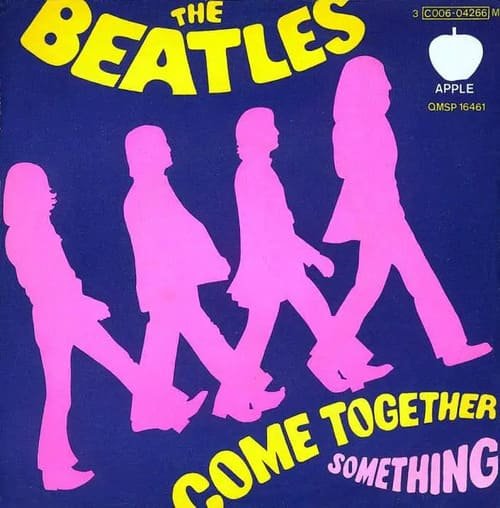
The Beatles‘ timeless rock song “Come Together,” a defining example of the band’s artistic originality and composition process, has a particular place in music history. The song released in 1969 as the first single from The Beatles’ legendary album “Abbey Road,” is a lasting monument to The Beatles’ ability to push boundaries and produce music that resonates beyond generations.
“Come Together” immediately catches the fans’ attention with its characteristic bassline, hypnotic beat, and intriguing lyrics by John Lennon. The song’s mix of rock, blues, and psychedelic elements exemplifies The Beatles’ openness to experiment and adapt their style, reflecting the shifting musical scene of the late 1960s.
The song’s mysterious and lyrical lyrics by John Lennon impart an aura of mystery to it. “Come together, right now, over me” invites unity and connection while providing open interpretation. Because of the lyrical ambiguity, fans could discover personal meaning in the song, contributing to its long-lasting appeal.
The instrumental arrangement adds complexity to the song, featuring George Harrison’s gritty guitar work and Ringo Starr’s steady drumming. The tune’s characteristic bassline, which grounds the music, has become one of the most identifiable components of the “Come Together” song. The song’s popularity rises beyond its music skills. “Come Together” has been performed and adapted by several musicians across multiple genres, showing its timeless and versatile character.
4. Good Golly Miss Molly – Little Richard
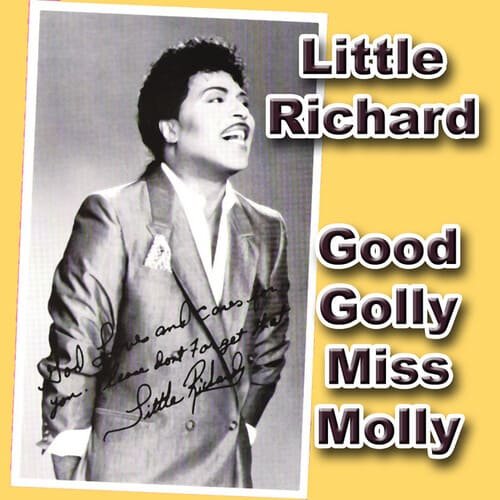
“Good Golly Miss Molly,” Little Richard‘s high-energy rock ‘n’ roll song, is a milestone in the genre’s history, demonstrating the artist’s exuberant personality and essential effect on the early days of rock music. The song released in 1958, is still an example of Little Richard’s powerful vocal range and skills.
“Good Golly Miss Molly” explodes with energy and enthusiasm from the opening piano chords through the irresistible chorus. The lyrics of the song project passion and celebration, with the title character “Miss Molly” symboling joy.
The musical arrangement, which includes a piano-driven melody and tight interaction between the instruments, adds to the song’s infectiousness. The powerful drive of the rhythm section and the rawness of the recording convey the live intensity of Little Richard’s performances, showing his ability to command attention both in the studio and on stage.
“Good Golly Miss Molly” has become a fixture of rock ‘n’ roll history, lauded for its contribution to the genre’s growth and effect on following generations of performers. Its use of gospel, rhythm, blues, and boogie-woogie components emphasizes Little Richard’s influence on the sound of rock music during its early years.
5. When The Deal Goes Down – Bob Dylan
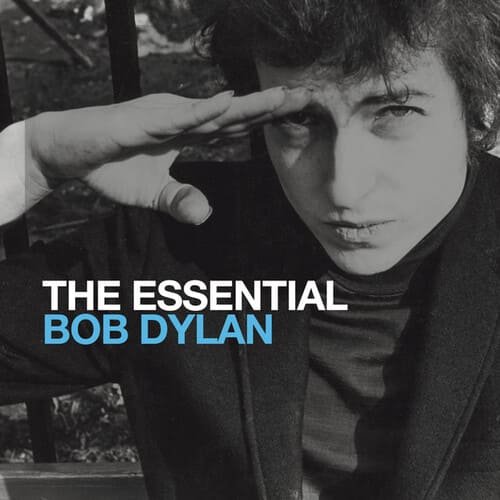
“When the Deal Goes Down,” a heartfelt ballad by famed singer-songwriter Bob Dylan, shows his ongoing ability to produce dramatic and contemplative songs that elicit strong emotional responses from fans. The song released in 2006 as part of Dylan’s “Modern Times” album pays homage to Dylan’s famous folk heritage while embracing a timeless quality that speaks to the human experience.
“When the Deal Goes Down” radiates melancholy and thoughtfulness from the opening chords of the quiet guitar strumming and Dylan’s weary voice.
“When the Deal Goes Down” shows Bob Dylan’s ability to produce music that crosses genres and generations. The song’s contemplative character and universal themes allow fans to uncover their tales inside its lyrics, resulting in the intimate connection Bob Dylan’s music is known for.
“When the Deal Goes Down” is a song from Dylan’s comeback to popularity, “Modern Times,” an album that shows his lasting songcraft and status as a singer whose music continues to reverberate across the years.
Ringo Starr reveals why he likes “When the Deal Goes Down” by Bob Dylan as one of his favorite songs of all time:
“You just got to love Bob. My old-time favourite lately is ‘When The Deal Goes Down,’ and it’s just a beautiful love song. It’s this beautiful love song, he’s very romantic in a lot of songs, everyone listens to his wacky dream stuff, which is great. He moves me on that record.”
6. You Belong With Me – Taylor Swift

“You Belong with Me” is a song written by Taylor Swift, an American singer-songwriter. Fearless (2008), her second studio album, was released to US radio on April 20, 2009. Swift created the song with Liz Rose to represent a narrator’s unrequited love for a male underappreciated by his girlfriend, inspired on a phone call between a member of her touring band and his girlfriend that she overheard.
“You Belong with Me” was produced by Taylor Swift and Nathan Chapman and has a banjo-led production as well as violin, mandolin, and rock-influenced bass and electric guitars. Despite Big Machine Records’ promotion of the track to country radio, critics regarded it as a pop song that artistically matched 1980s subgenres such as pop rock and power pop.
Swift’s narrative method shines through in the song’s verses, as she crafts a realistic image of a girl who stands by as the person she cares about falls connected with someone else. The chorus’s iconic hook, “You belong with me,” expresses desire and hope for a stronger relationship.
The addictive melody, cheerful tempo, and sing-along chorus contribute to the song’s enormous appeal. Swift’s skills to combine country and pop influences generate a sound that appeals to all-around fans, cementing her status as a genre-defying musician.
Does Ringo Starr like Taylor Swift?
Ringo Starr is a true Taylor Swift fan. The Beatles drummer said “great girl singers” in one of his interviews.
Ringo Starr reveals why he likes “You Belong with Me” by Taylor Swift as one of his favorite songs of all time:
“Taylor Swift. I love Taylor Swift, that’s just how I am. I love her, and you know you can’t doubt the Black-Eyed Peas, that’s pretty powerful. But, there’s hundreds of bands out there. You really can’t, I can’t hear them all. I didn’t all the acts in the ’60s or the ’50s, you know, you have to listen to what you listen to.”
7. Rain – The Beatles
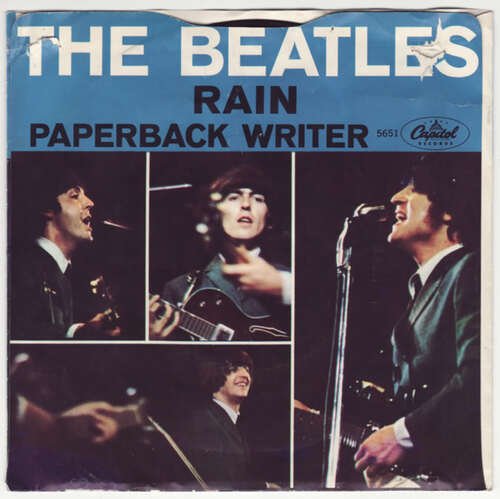
English rock band The Beatles released “Rain” as the B-side of their “Paperback Writer” single on May 30, 1966. Both tracks were recorded during the sessions for Revolver magazine. However, none is included on the album. The song “Rain” was composed by John Lennon and is ascribed to the Lennon-McCartney collaboration. He described it as “about people always moaning about the weather.”
When asked about “Rain,” John Lennon stated the song was about “people moaning because… they don’t like the weather.” Another interpretation is that the “rain” and “sun” in the song are the effects of a harmless LSD trip. In the Beatles’ 1963 song “There’s a Place,” John Lennon spoke of the significance of mind over matter; in “Rain,” he expanded on this theme through hallucinogenic substances.
According to author Nicholas Schaffner, it was the first Beatles song to depict the material world as an illusion, a concept. Also, John Lennon and George Harrison explored extensively during the band’s psychedelic phase.
“Rain” grabs from the beginning with its characteristic drum entrance provided by Ringo Starr. Also, “Rain” stands out for its inventive use of studio methods. Backward tape loops, automated double tracking, and novel panning effects that moved the sound from one speaker to another were used during the recording sessions. These experimental production choices gave the music a hallucinogenic vibe and broadened the boundaries of what might be accomplished in the recording studio.
Ringo Starr mentions why he likes “Rain” by The Beatles as one of his favorite songs of all time:
“‘Rain’ is great, because the drums are weird on ‘Rain,’ and I felt I only played like that on ‘Rain.’ Then I went back to playing like I play. It was faster, no one else knows, they just say, ‘Oh, they’re playing that.’ But to me the drums, I felt, had another quality.
I’ve never played like that since I don’t feel. I was asked the other day about naming an obscure Beatle track, and I was saying, ‘Are there any?’ I don’t know. That was the best band in the land. And I was part of it, and the other three were incredible musicians. And I think we had more than that, where we understood what we were all thinking when we were making it.”